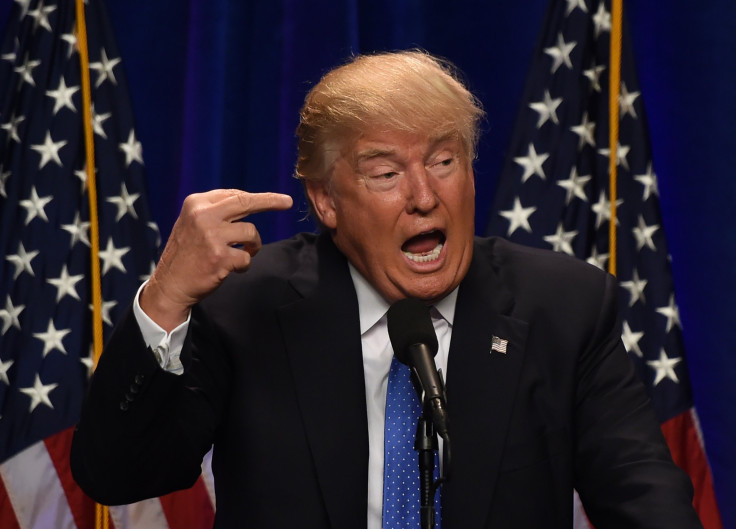With Renewed Call For A Muslim Ban, Donald Trump Makes His Fundraising Problem Worse

For all the recent talk of a general election pivot, Donald Trump seems to be spinning in place. In his speech Monday, responding to the Orlando, Florida, massacre, the presumptive Republican nominee once again called for a ban on Muslim immigration — despite his campaign’s repeated insistence in recent weeks that he was backing away from that position.
The person doing the insisting was senior campaign adviser Paul Manafort, who as recently as three weeks ago was telling the Huffington Post that Trump was “moderating on that."
"He operates by starting the conversation at the outer edges and then brings it back toward the middle,” Manafort said at the time. "Within his comfort zone, he’ll soften it some more.”
Manafort, a longtime Republican operative, isn’t making that pitch solely to the news media. He’s also been telling top conservative donors to expect a more soft-spoken, domesticated Trump in the general election. But the candidate himself has repeatedly belied Manafort’s promises, with potentially serious consequences for his campaign’s nascent fundraising operation.
In what will certainly be the most expensive presidential election in American history, Trump likely needs to raise between $1 billion and $1.5 billion if he intends to compete against presumptive Democratic nominee Hillary Clinton. But officials in his own party have predicted that he’ll fall well short of that mark, partly because his campaign had no fundraising apparatus to speak of during the Republican primary and partly because he’s alienated important right-wing philanthropists like the billionaire siblings Charles and David Koch. Trump allies have been trying to compensate for these deficits by making behind-the-scenes appeals to the GOP’s 1 percent and by promising Trump’s flamboyant brand is more malleable than it seems.
Manafort has led that initiative from the beginning. In late April, he told a gathering of Republican National Committee members that Trump’s campaign up until that point was all a big act and that it would change soon enough.
“That’s what’s important for you to understand: that he gets it and that the part he’s been playing is evolving,” Manafort told the room. The adviser hasn't been entirely wrong about that.
There have been signs of evolution. Trump has taken to using a teleprompter instead of speaking extemporaneously. And last month he signaled his openness to cutting entitlements, a policy championed by both the Koch brothers and their champion in Congress, House Speaker Paul Ryan, R-Wis. But Trump’s essential Trump-ness has remained largely intact, as his response to the Orlando shooting has demonstrated. Manafort has his work cut out for him.
© Copyright IBTimes 2025. All rights reserved.






















